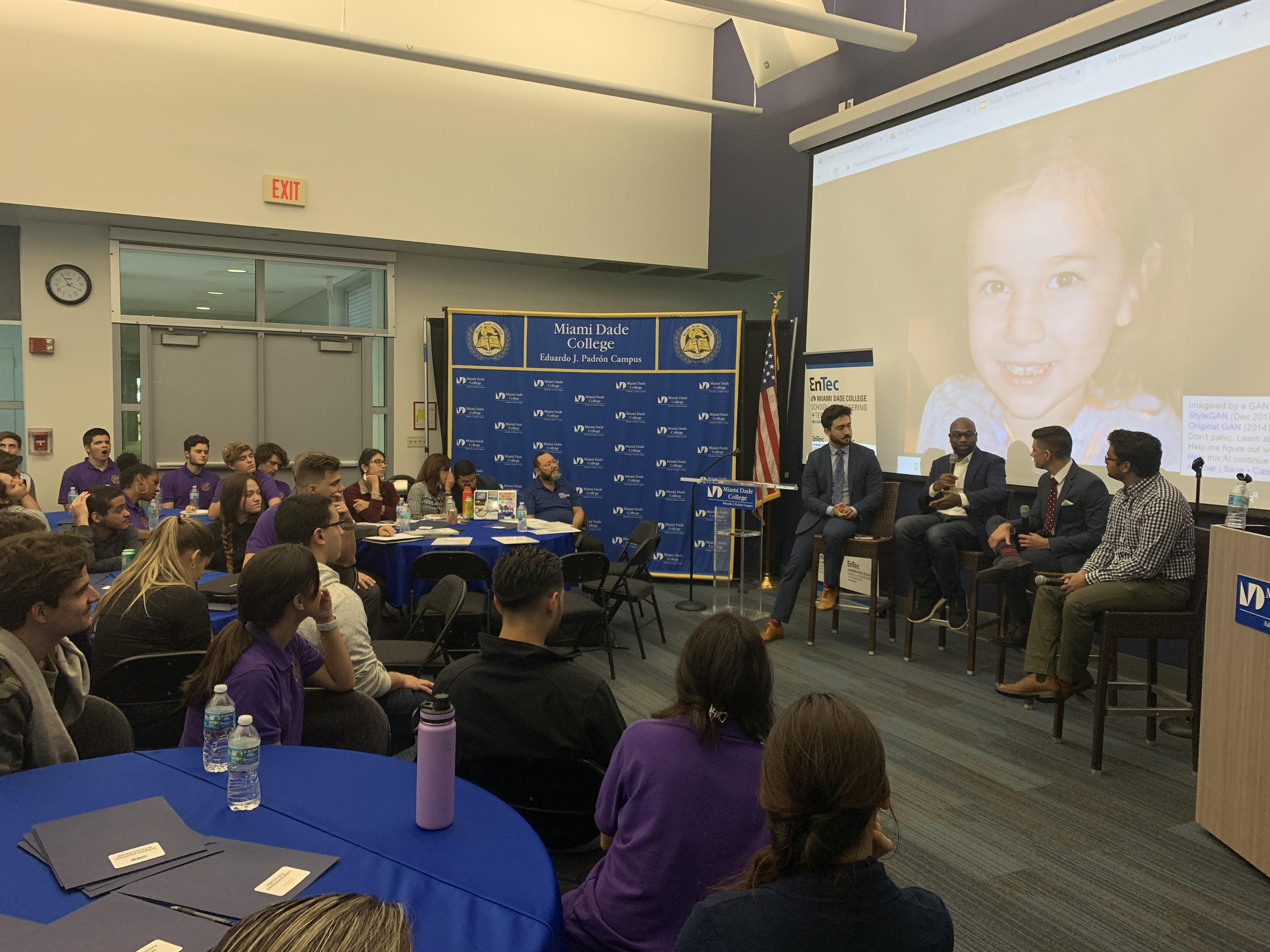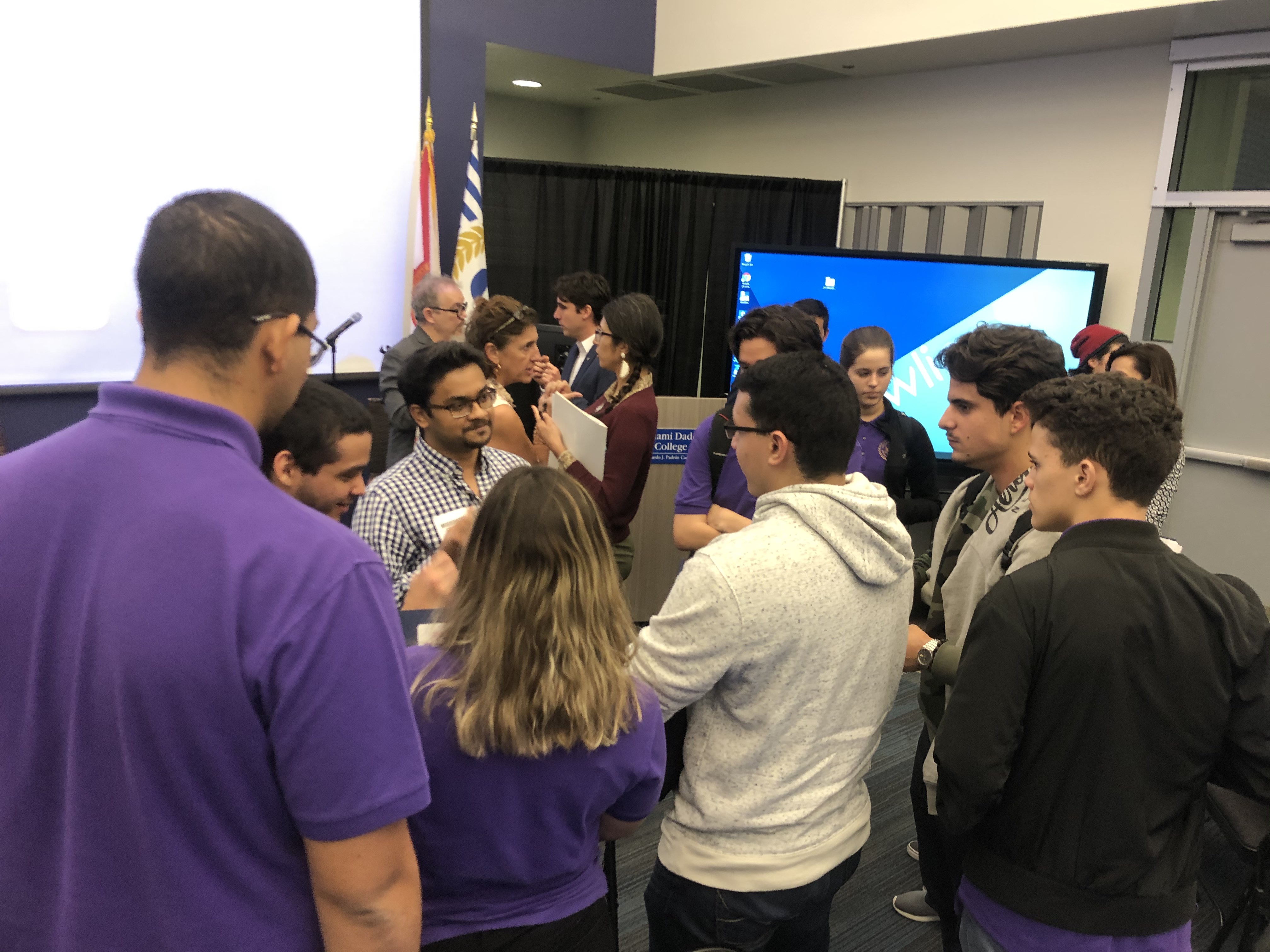Facial Recognition, Ethics and Society panel discussion and workshop.
Recent events like the Black Lives Matter movement, violent protests in Charlottesville, Virginia, and police killings of African Americans like Stephon Clark and Eric Garner highlight the racial and ethnic inequalities that form an everyday struggle in American society. While, artificial intelligence based systems have enormous potential to help make the world a better place, they constantly grapple with the aim of performing with fairness and accuracy whilst faced with the possibility of reinforcing or even increasing the biases that exist in society today. When tasked with high-stakes decision making in domains such as criminal justice, it is essential to understand and factor in societal implications when building and deploying such technologies to protect all citizens’ rights and keep all parties accountable to the communities they serve in the digital age.
I had the privilege to attend a timely panel discussion titled Facial Recognition, Ethical Considerations and Social Responsibility at the Miami Dade College (MDC), Eduardo J. Padrón Campus, FL. As a grad student researching on making facial processing technology (FPT) 1 more demographically inclusive, it was fortuitous to interact with and understand perspectives from other Miami-based community FPT stakeholders including the tech industry, law enforcement and entrepreneurship in front an audience of 100 honors undergraduate students from MDC. For more information, please see this report.

Additionally, after the panel discussion, as part of an MDC Responsible Computer Science initiative to integrate ethics and social responsibility into undergraduate computer science curricula and pedagogy, I moderated a role-playing scenario titled Ethical Implications of the Adoption of Facial Recognition Technology. Together with the students, we simulated a city hall discussion of whether the police department should employ an FPT by personifying key figures in society including the owner of a FPT company, software developer, local citizen affected by the technology and the Mayor. It was inspiring to see how the students rose to the challenge to reflect and consider their given role’s position and appreciate the complexity of using an FPT in society. For more details, please see this report.
Thank you Dean Antonio Fornaguera for having me!

-
Facial processing technology broadly encompasses various facial classification tasks such as detection of the face and facial landmarks (eyes, nose, lips etc.), facial analysis and face recognition from using varying input sources such as images or videos. ↩